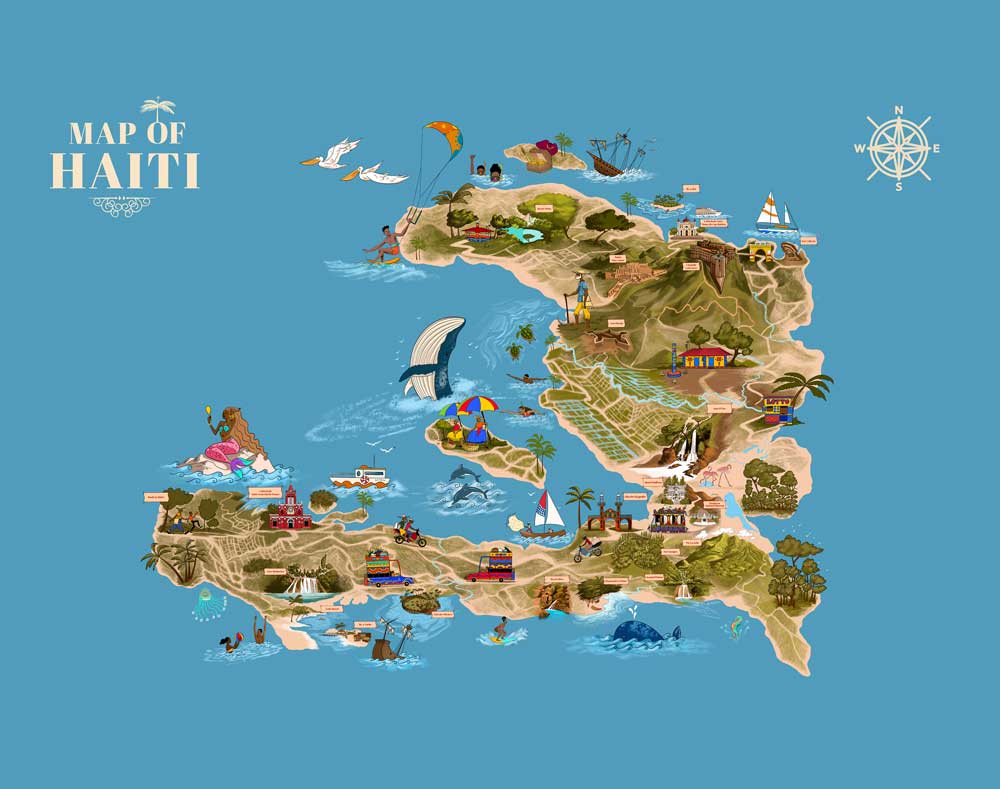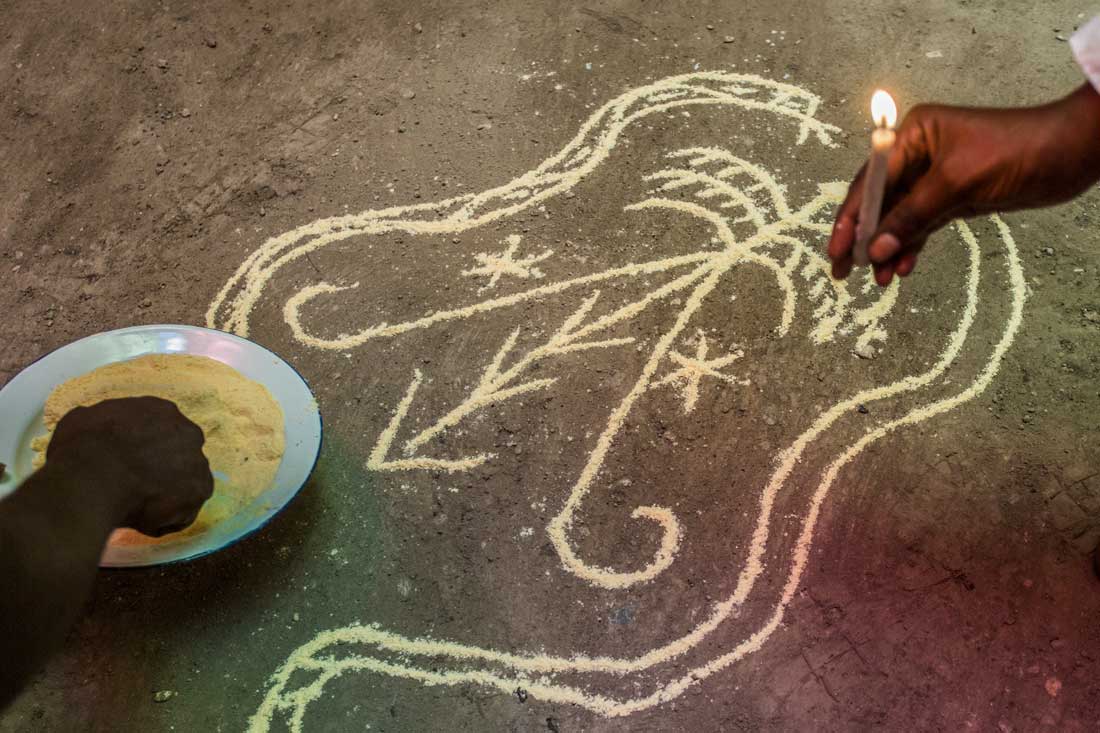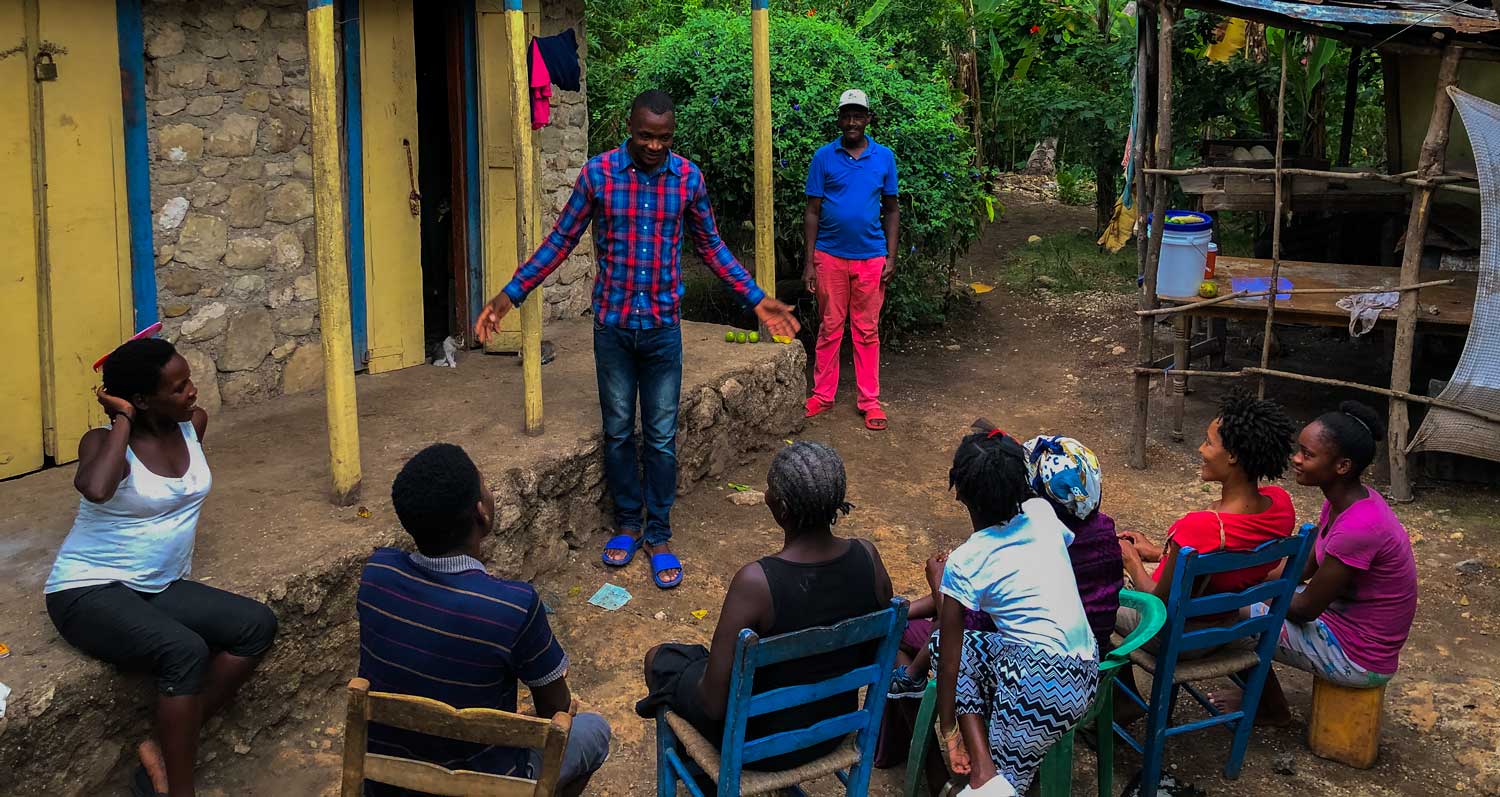
Photo: Anton Lau
Krik-krak! (and tim-tim!)
An oral tradition as old as the birth of Haiti, folk storytelling — or tire kont — is one of the pillars at the center of the country’s culture, and must be practiced to survive from generation to generation
“In my family, we are four, but when one of my brothers and sisters is not there, we can’t do anything…” Do you know the answer?
What you’ve just read is an example of a captivating Haitian cultural tradition known as kont, or “tales”. The scene in which you’ll hear these usually begins at nightfall, when children leave the warmth of their family homes to reunite outside and do what Haitians call tire kont – “telling tales”. These tales aren’t really stories, but rather short charades, each more amusing than the one before, based on the details and small objects of everyday life, and told in very colorful language. The practice of tire kont is often referred to as krik-krak! or tim-tim! because of the call-and-response formula of the charades.
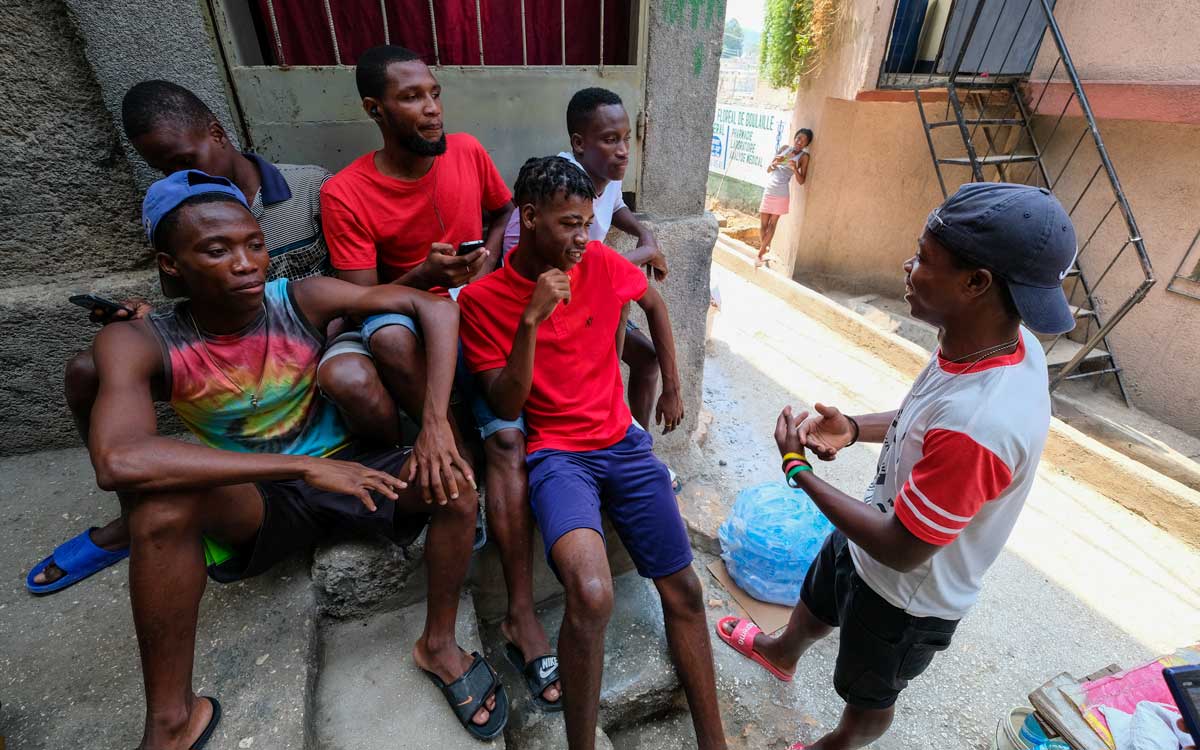
Photo: Franck Fontain
How krik-krak works
The taleteller, the one who usually knows the answer to the charade, signals the start of a charade by calling “Krik!” To this, everyone replies: “Krak!”
When the taleteller says krik, they’re saying, “Prepare yourself, I have something for you to guess.” After people respond with “Krak!”, the taleteller continues: “Tim tim?” and the assembly replies, “Bwa chèch.”
“I may be small, but I have honored the greatest men.”
At this point, it’s up to the fastest person to answer. Suggestions shoot up from every corner: candle? Pen? Notebook? And if no one knows the answer, everyone admits defeat by saying, “Mwen bwè pwa.” Then, and only then, the taleteller reveals the answer to the riddle. Krik-krak is a communal practice that says a lot about Haitian people’s way of life. The tale, just like music and literature, contributes to keeping the Creole language alive and dynamic.
The practice of krik-krak / tim-tim is inherited from Haitians’ ancestors in Africa. In So Spoke the Uncle, Jean Price-Mars explains that similar practices appear in other countries where most of the population is descended from Africa, like Guadeloupe, and that the same krik-krak formula is still in use in some places in Africa.
Alongside riddles, there are also stories told to children and adults that follow the same formula, and which participate in the transmission of Haitian’s collective communal values and morality. Some tales, such as “Tezin” and “Ti Soufri”, are widespread across Haiti. Just like the fables and fairytales, these stories carry moral lessons and reflect social mores.
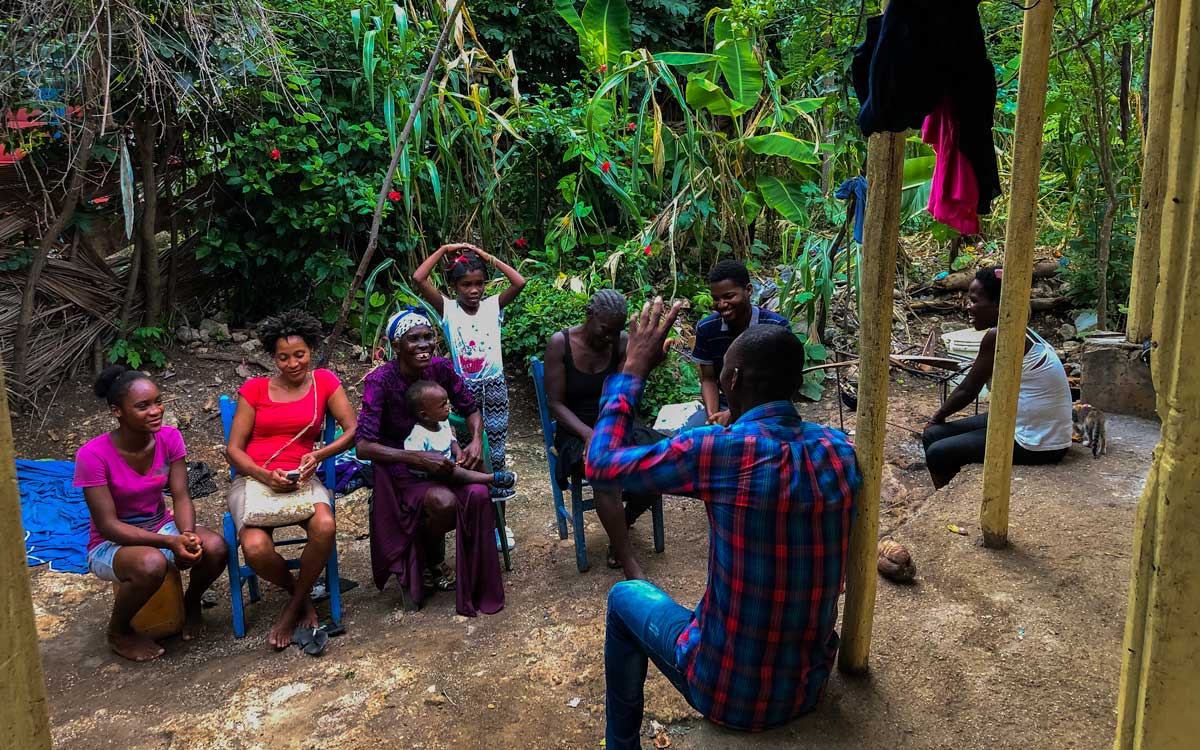
Photo: Anton Lau
Haitian storytelling: growing or vanishing?
Orality occupies an extremely important place in Haiti, to the point where even Vodou, the most popular religion, is preserved overwhelmingly through oral traditions, including a strictly oral form of literature called odyans. The Haitian tale puts in perspective ways of life of the lower class and of people living in the countryside, where themes such as ownership, death, inheritance and family resurface often – familiar themes in European fairytales, which likewise often centre on the rural working-class. Although the social rite of telling stories around campfires is older than history itself, and the Haitian call-and-response guessing game is anchored in ancient African modes of storytelling, krik-krak! stands out as a unique treasure of Haitian culture, and one that both reflects and co-creates Haitian society.
However, since kont are handed down generation through generation orally, some rarely-told tales are at risk of disappearing…
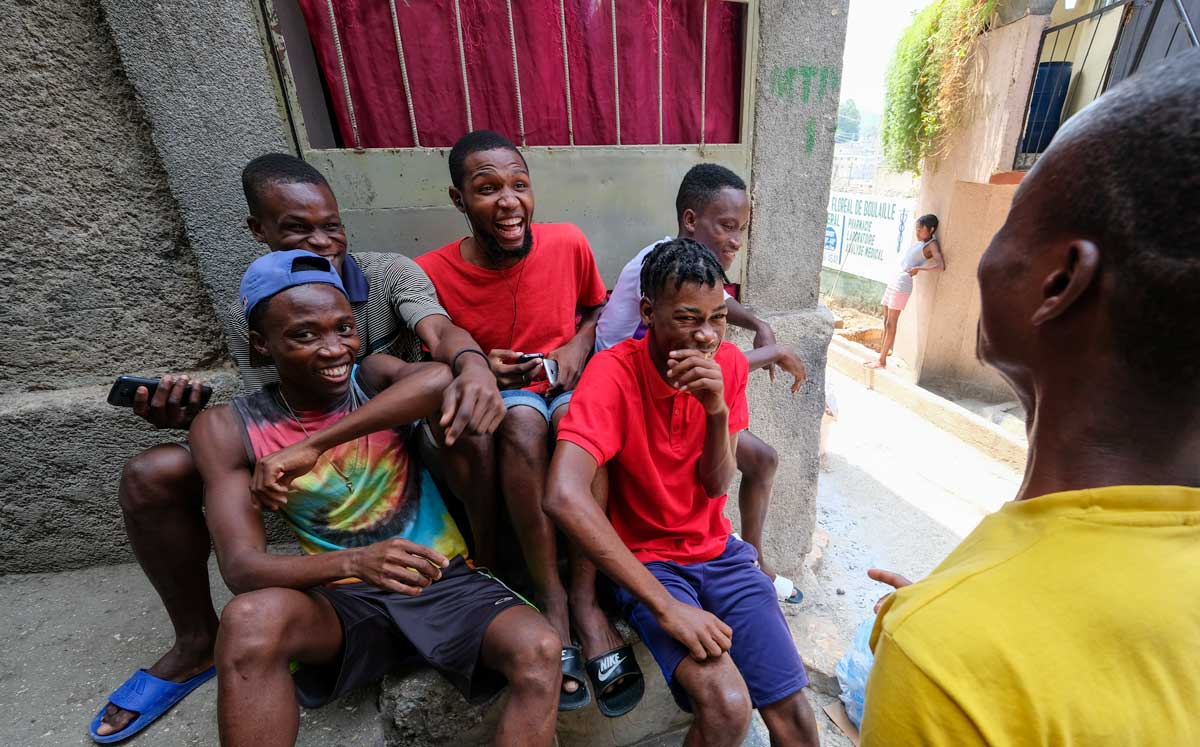
There’s a Krik-krak! festival in March, and you’re invited!
Since 2009, an annual storytelling festival called Kont Anba Tonèl – the Intercultural Festival of Tales – has been hosted in Port-au-Prince as well as Jérémie and other provincial cities. Held every March, starting on World Story Day (March 20), the festival is largely an effort to showcase Haitian modes of storytelling, keeping the practice of krik-krak! alive. And it seems to be working – more and more comedians are turning to a career of professional taleteller, and some radio stations recover audio files of tales, archiving them to hold them in safekeeping for the future generations we hope will continue the practice.
If you visit Haiti during the last two weeks of the month of March, you’ll be able to attend the Kont Anba Tonèl festival and immerse yourself in an ancestral practice. Expect to hear a wealth of tales, attend talks by professional tale-collectors, and participate in workshops teaching many modes of storytelling, including krik-krak!. On that note…
“Krik? Gets dressed to the nines to stay at home?”
“Krak! The bed, of course…”
Written by Melissa Beralus and translated by Kelly Paulemon.
Published May 2020
Explore Haiti’s Art & Culture

Paradise for your inbox
Your monthly ticket to Haiti awaits! Get first-hand travel tips, the latest news, and inspiring stories delivered straight to your inbox—no spam, just paradise.


